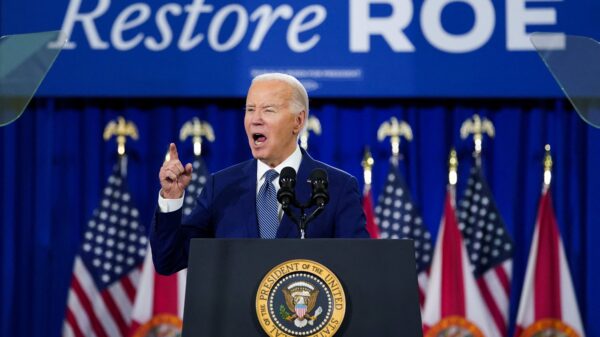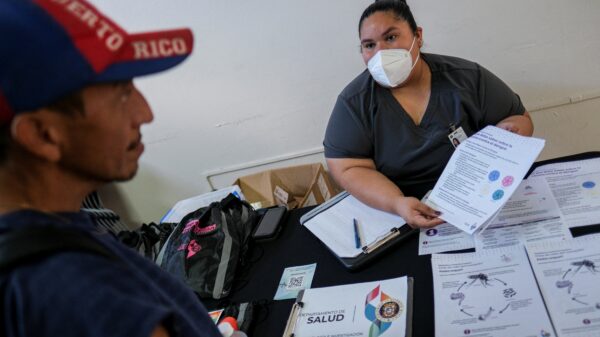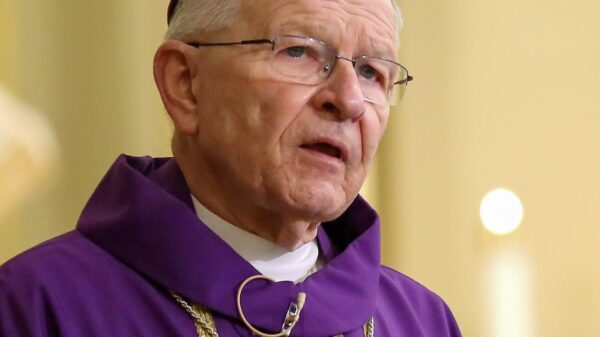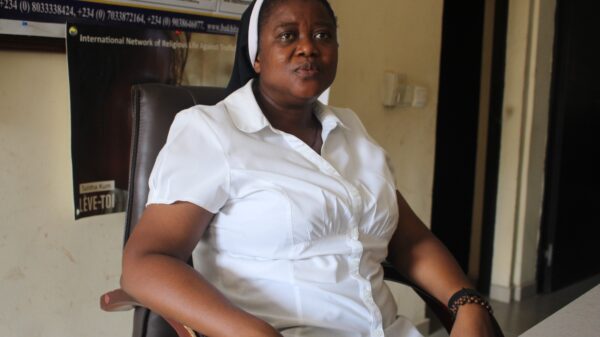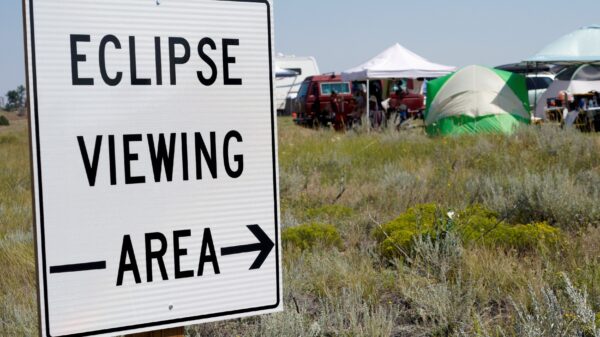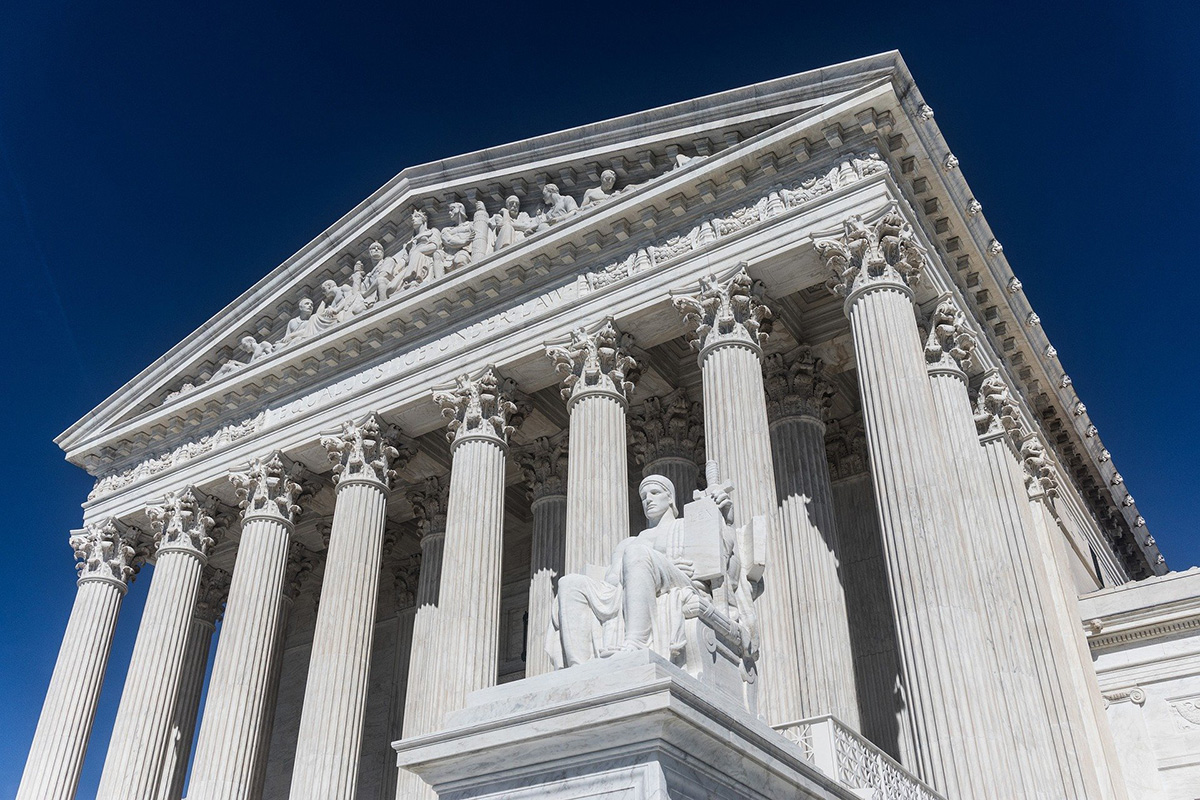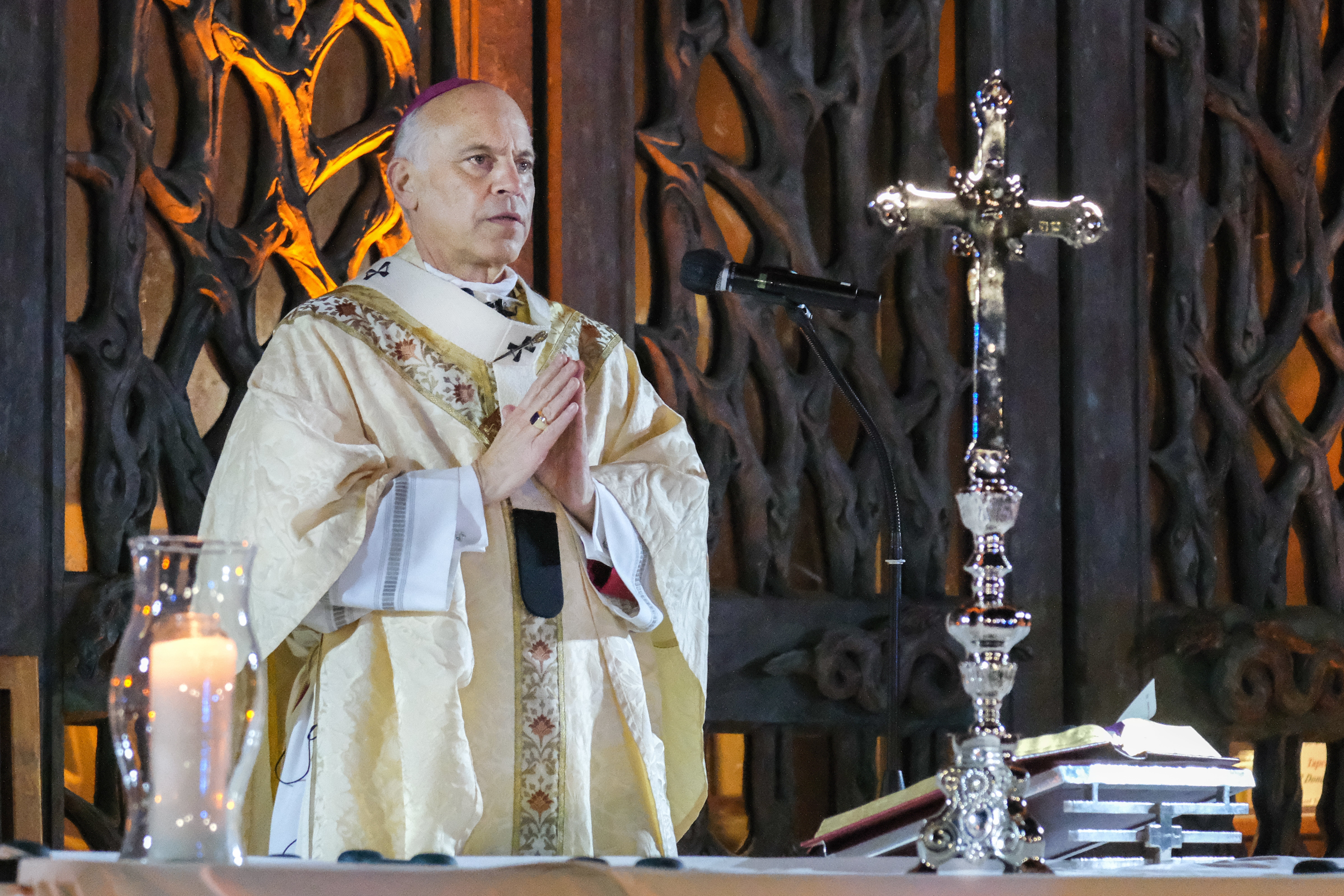WASHINGTON (OSV News) — The Supreme Court heard oral arguments Jan. 17 in a pair of cases concerning the regulatory power of federal agencies and the deference that courts give those agencies in their interpretation of the law, a legal doctrine known as Chevron deference.
Administrative agencies use experts to interpret and carry out federal laws, with broad policy implications on environmental, health care or even religious liberty fronts. The Chevron deference gives those agencies some leeway to do so, which can sometimes be seen in how different presidential administrations issue differing regulations based on the same laws.
The so-called Chevron deference is a product of the Supreme Court’s 1984 opinion in Chevron v. Natural Resources Defense Council, which upheld an Environmental Protection Agency regulation. Under that ruling, if Congress has not directly addressed a particular matter in a law, courts must give “reasonable” deference to a federal agency’s interpretation of law in their implementation.
Critics of that practice have argued it expands the power of the administrative state, while supporters argue that in many cases, the agencies may have greater firsthand knowledge of a particular issue than lawmakers in Congress, or are confronted with circumstances Congress did not consider in law.
The two cases — Loper Bright Enterprises v. Raimondo and Relentless, Inc. v. Department of Commerce — were heard the same day by the high court. Both cases were sparked by fisheries that objected to a National Marine Fisheries Service regulation requiring them to not only carry but pay observers on their vessels there to collect data to prevent overfishing.
During oral argument, Solicitor General Elizabeth Prelogar defended the Chevron deference, arguing its reversal would be an “unwarranted shock to the legal system.”
Former U.S. Solicitor General Paul Clement, one of the lawyers who represented the fishing companies, argued the “real world effect” of the practice causes chaos for some citizens affected by policy shifts.
“Ask the Little Sisters about stability and reliance interests as their fate changes from administration to administration,” Clement said. “It is a disaster.”
Becket, the religious liberty law firm representing the Little Sisters of the Poor in their ongoing legal efforts over their objections to paying for abortifacient drugs, sterilizations and contraceptives in their employee health plans, filed a friend-of-the-court brief on behalf of the Little Sisters of the Poor in support of Loper Bright, arguing that the Chevron deference can impact First Amendment rights.
Eric Rassbach, vice president and senior counsel at Becket, told OSV News, “Exhibit A for out-of-control federal bureaucrats is their decade-long campaign against the Little Sisters of the Poor, nuns who just want to continue ministering to the elderly poor and dying consistent with their Catholic beliefs.”
“Chevron must go because it empowers those bureaucrats to target religious believers like the Little Sisters,” Rassbach said.
John Kirkwood, a professor at Jesuit-run Seattle University’s School of Law, told OSV News that the cases concern “how courts and agencies interact or overlap in interpreting an agency’s statutory authority.”
Asked how courts and agencies determine what constitutes what makes a regulation “reasonable,” Kirkwood said the courts will consider “plausible” meanings of language used, and what Congress’s goals were in creating a relevant law.
“So if a particular interpretation would advance the goals Congress had, then it would be reasonable,” he said.
If the court moved to overrule the Chevron doctrine, Kirkwood said, it would remove “agency deference” and “would require courts to make the ultimate decisions on legal interpretations.” One implication of that may be cutting back on environmental protections “if courts are generally less sympathetic to the environment, more sympathetic to costs imposed on businesses than the EPA.”
But he added it also is “quite possible that there’ll be cases where the agency would be more conservative than the courts on an environmental issue.”
The New York Times reported prior to oral argument that the lawyers from Cause of Action, who were legal representation for the fishing companies, were funded by Americans for Prosperity, a group funded by billionaire Charles Koch, who has sought to reduce federal regulations.
It was not immediately clear what, if any, action the Supreme Court might take, but many of the justices appeared skeptical of the doctrine in their lines of questioning. Their decision is expected by the end of the court’s term, typically in June.
Isaiah McKinney, litigation fellow at Pacific Legal Foundation, said in a statement that during arguments in both cases, “a majority of the Court seemed ready to overrule Chevron.”
“While all the Justices recognized that overruling Chevron could create questions, a majority seemed more concerned with the problems that Chevron itself has created, including how to provide a clear standard of review for the lower courts to follow, when a statute is ambiguous, whether Chevron gives executive agencies binding authority to interpret legal terms, what role Skidmore deference plays, how stare decisive intersects with new agency interpretations, and how the Administrative Procedure Act interacts with deference,” McKinney said.
“In fact, during the two arguments, the Court and the advocates discussed most of the Court’s major decisions applying Chevron and how to square them,” he added. “All of the advocates were excellent, but the Solicitor General had a hard task in answering the Justices’ challenging questions as to why Chevron, with all its issues, should be upheld. Overall, Chevron’s days seem numbered.”
Kate Scanlon is a national reporter for OSV News covering Washington. Follow her on X (formerly known as Twitter) @kgscanlon.


